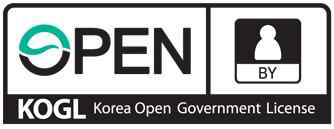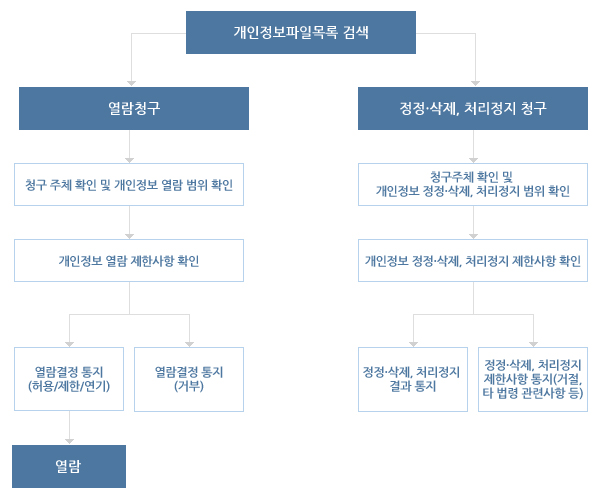Plenary Results
Plenary passes 71 bills including amendment to the River Act
- Nov 09, 2023
- 287
Plenary passes 71 bills including amendment to the River Act
- Amendment to the River Act to enable national funding to maintain locally managed rivers affected by water levels
on nationally managed rivers
- Amendment to the Act on Promotion of the Transportation Convenience of Mobility Disadvantaged Persons to support
the installation of wheelchair-accessible facilities on chartered buses
- Amendment to the Act on the Promotion of Technology for Ensuring the Safety of Food and Drugs to support the promotion
of regulatory science and entry into new technology markets for food and drugs.
The National Assembly passed 72 agenda items, including 71 bills, at the second plenary meeting of the 408th extraordinary session held on July 27. The following are major bills tabled for consideration:
<1> Amendment to the River Act
The approved amendment seeks to ensure flood-prevention measures by allowing the government to manage local rivers that are severely affected by heavy rains.
Presently, the Minister of Environment serves as the management agency of national rivers, while Mayors and Governors oversee local rivers within their jurisdiction. River stewardship expenses shall be borne by the national treasury for national rivers and by the relevant city or province (do) for local rivers.
The amendment, however, allows the Minister of Environment to carry out river management in sections of local rivers affected by increases in the water levels of national rivers, known as the national river drainage impact area, to prevent flood damage. The costs of river management in such areas shall be covered by the national treasury.
This amendment takes effect upon promulgation.
<2> Amendment to the Act on Promotion of the Transportation Convenience of Mobility Disadvantaged Persons
The approved amendment allows the central and local governments to support necessary costs, within their budget, when chartered bus operators install transportation convenience facilities such as wheelchair lifts.
Current law mandates that the operator of a regular route bus such as intra-city buses introduce low-floor buses when replacing existing buses and requires financial support from the central and local governments for the installation of wheelchair lifts by operators of regular route buses. The approved amendment extends this financial support to chartered bus operators.
The amendment also includes provisions for specifying the standards and criteria for wheelchair lifts on regular route buses and chartered buses as prescribed by the Ordinance of the Ministry of Land, Infrastructure and Transport.
<3> Amendment to the Act on the Promotion of Technology for Ensuring the Safety of Food and Drugs
This comprehensive amendment renames the law as the Regulatory Science* Innovation Act on Support for the Safety and Commercialization of Food and Drugs** and provides institutional support for the promotion of regulatory science and the swift market entry of new technologies in the food and drugs sector.
* Regulatory science is the science of developing new tools, standards, and approaches for overall safety management, from assessment of the safety, efficacy, quality, and performance of food and drugs to their licensing and use (subparagraph 2 of Article 2).
** English translation of original Korean title is tentative.
The key revisions include support for commercialization and training of specialized personnel to promote regulatory science. Specifically, the Minister of Food and Drug Safety may operate a qualification system for specialized personnel, as prescribed by Prime Minister’s Ordinance; designate institutions to host training and furnish financial support; and disclose evaluation criteria developed through R&D projects and apply them at the planning stage for innovative products.***
*** food or drugs using new technology (subparagraph 6 of Article 5)
In addition, any person intending to develop innovative products or the head of the central administrative agency that implements a national R&D project for such innovation may request that the Minister review the safety, efficacy, and quality of the product.
<4> Amendments to the Resident Registration Act, etc.
① The amendment establishes special provisions for swift changes to resident registration numbers when the applicant's life or physical health is at risk due to exposure of their personal information. Under the current law, the Committee for Change of Resident Registration Numbers must complete the review within 90 days of receipt of application. This amendment, however, shortens the review period to 45 days in urgent cases when there is a recognized need to change the number.
The amendment seeks to provide more flexibility and responsiveness for certain administrative procedures, particularly in cases when swift action is necessary.
② The amendment to the National Health Promotion Act enlarges non-smoking areas from "within 10 meters" to "within 30 meters" of the boundaries of kindergartens and childcare facilities. It also allows local government leaders, in accordance with the Elementary and Secondary Education Act, to designate areas within 30 meters of the boundaries of school facilities as non-smoking areas. This legislative measure is in response to concerns that non-smoking areas are too narrowly defined and insufficient at preventing exposure to secondhand cigarette smoke.
③ The amendment to the Act on 119 Rescue and Emergency Medical Services allows the Fire Commissioner of the National Fire Agency to establish and operate the international emergency medical services (EMS) team when significant disasters occur overseas, such as: ▲ providing EMS to overseas Korean nationals; ▲ transferring emergency patients who are overseas Korean nationals to domestic medical institutions; and ▲ providing humanitarian rescue activities for people in disaster-stricken countries. In addition, it permits the integration of international EMS team and the international rescue squad in the case of overseas operations.
These amendments are made in response to the increasing number of South Koreans traveling or residing abroad, and the potential need for urgent transfers or other assistance due to various incidents, accidents, infectious disease outbreaks, and terrorist threats abroad.


